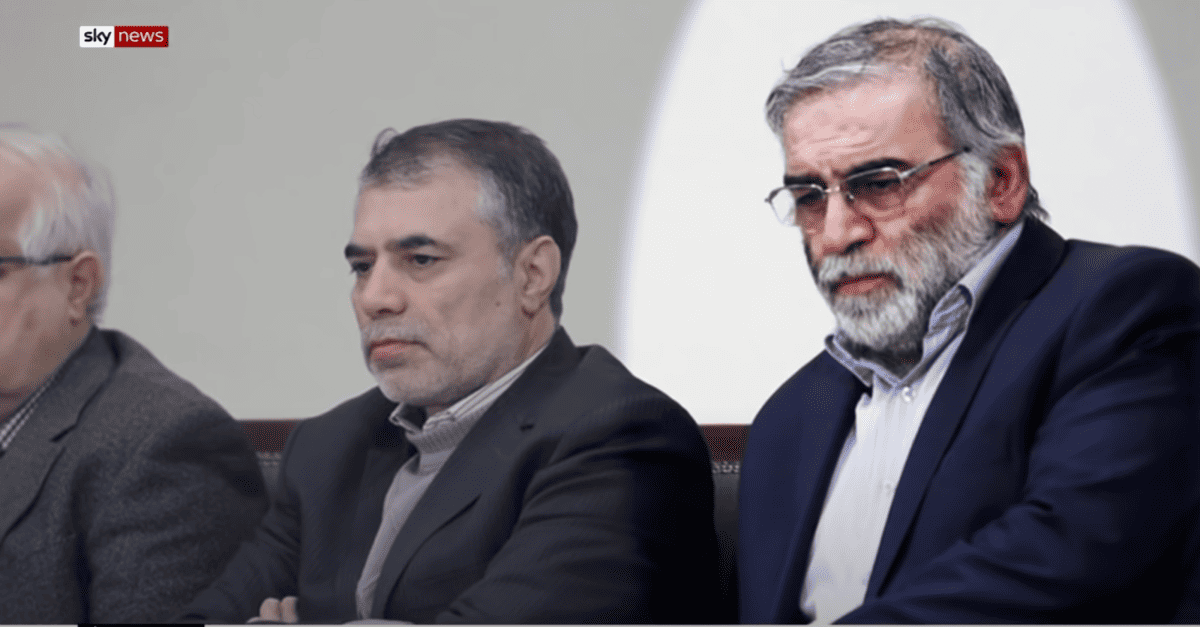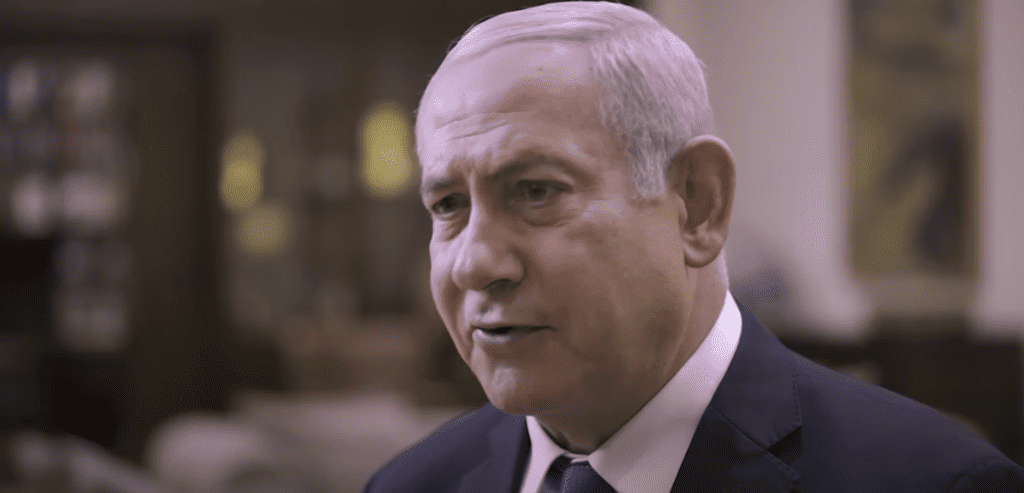Briefing à l’Américaine : Assassinat de Mohsen Fakhrizadeh et accord nucléaire iranien

English version below
S’ il semblait déjà que Trump ne rendrait pas la transition vers la présidence de Biden facile, et bien… ce n’est pas non plus le cas des acteurs internationaux qui avaient un intérêt à ce que Trump reste au pouvoir. La semaine dernière, le scientifique en charge du programme iranien nucléaire Mohsen Fakhrizadeh a été tué. Les hauts responsables iraniens ont affirmé qu’Israël avait commis cet assassinat.
Bien qu’Israel et les responsables de la CIA n’aient pas encore commenté la situation, des preuves fondées semblent désigner le Mossad et la CIA comme principaux acteurs de ce meurtre. La précision et l’intelligence nécessaires suggèrent que seules des agences telles que la CIA ou le Mossad pourraient avoir effectué cette action. Et ce meutre semble être en corrélation avec la politique étrangère de Trump et Netanyahou : juste en janvier dernier, les USA revendiquent l’exécution extrajudiciaire de Qassem Suleimani, un puissant Général iranien.
En réponse à la tuerie, l’Iran a juré vengeance pour le martyre Mohsen Fakhrizadeh et a accéléré son programme nucléaire, même s’il a déclaré que ce serait uniquement à des fins civiles. A la lumière de l’accélération du processus d’enrichissement de l’uranium en Iran, l’administration de Trump a durci la ligne en matière de politique étrangère en imposant de nouvelles sanctions économiques.
L’accord iranien

Une des promesses de campagne de Biden était de relancer l’accord nucléaire iranien, un traité négocié avec l’Iran par l’administration d’Obama en 2015. En acceptant cet accord, l’Iran avait promis de limiter sa production d’uranium à 3.67% et d’abandonner ses prétentions à obtenir la bombe nucléaire. De plus, ils autorisaient les acteurs internationaux à vérifier que ces engagements étaient tenus. En échange, les Etats-Unis et l’Union Européenne auraient retiré toutes les sanctions relatives au nucléaire. Cet accord était controversé à l’époque. Les partisans d’une ligne dure de l’Iran et des Etats Unis lui étaient opposés.
Donald Trump avait choisi de ne pas renouveler l’accord en 2018 et d’imposer des sanctions économiques en guise de dissuasion. Bien que les Iraniens modérés actuellement au pouvoir avaient publiquement affirmé qu’ils ne chercheront pas la bombe nucléaire, le pays commençait à s’enrichir en uranium au-delà de la limite imposée en 2015. Ils sont toujours très loin des 90% d’enrichissement en uranium nécessaires pour développer la bombe et les têtes de gouvernement ont assuré que cet enrichissement était uniquement pour des fins civiles et non militaires.
Les défis
Même si l’accord a été abandonné il y a deux ans, les démocrates espéraient qu’il pourrait être rétabli après leur victoire aux présidentielles. Quoi qu’il en soit, les assassinats de Qassem Suleimani et Mohsen Fakhrizadeh ont rendu cette perspective bien plus difficile. L’iran a fait une déclaration cette semaine disant que les US devraient accepter les termes de l’accord de 2015 et augmenter la limite de l’enrichissement s’ ils voulaient obtenir un siège à la table des négociations.
L’administration de Trump, qui travaille étroitement avec le gouvernement de Benjamin Netanyahu, a pris des mesures qui frôlent l’imprudence pour empêcher l’administration de Biden de parvenir à un accord avec le gouvernement iranien, en donnant pour cela matière à durcir les lignes iraniennes et états-uniennes. Si Biden décide néanmoins de poursuivre l’accord, il devra concéder plus qu’Obama l’a fait en 2015.
The assassination of a top Iranian Scientist makes the return to an Iran Nuclear Deal less plausible
If it seems as though Trump will not make the transition to the Biden Presidency easier, well… neither are international actors that had a vested interest in Trump’s stay in power. Last week, the chief scientist of the Iranian Nuclear Program Mohsen Fakhrizadeh was killed. High Iranian officials have said that Israel has committed the assassination.
Although Israeli and CIA officials have yet to comment on the situation, circumstantial evidence seems to point to the Mossad and the CIA as the main actors in the killing. The precision and intelligence needed for the assassination suggests that only agencies like the CIA or the Mossad could have executed the action. And the killing seems to be in line with the Trump-Netanyahu foreign policy, only last January the US claimed the extrajudicial killing of Qassem Suleimani, a top Irani General.
In response to the killing, Iran swore vengeance for the martyr Mohsen Fakhrizadeh and has accelerated its nuclear program, although it has declared it to be only for civil purposes. In light of the acceleration of the uranium enrichment processes in Iran, the Trump administration has doubled down on its hardliner foreign policy by imposing new economic sanctions.
Regardless of the legality or the infringement on national sovereignty that the killing of Fakhrizadeh supposes, the issue looms larger than a “simple sovereignty violation”. It makes Biden’s negotiation for a new Nuclear Deal with Iran much harder.
The Iran Deal

One of Biden’s campaign promises was to revive the Nuclear Iran Deal, a treaty negotiated with Iran by the Obama administration in 2015. By agreeing to the deal, Iran promised to limit its processing of uranium to 3.67% and to give up its aspirations to get the atomic bomb. Furthermore, they would allow international actors to verify that the engagement was kept. In return, the United States as well as the EU would take away all nuclear related sanctions. The deal was controversial at the time. Hardliners from both Iran and the United States opposed the deal.
Donald Trump chose not to renew the deal in 2018 and chose to impose economic sanctions as a form of dissuasion. Although the Iran moderates who are currently in power have publicly said that they would not pursue the nuclear bomb, the country began enriching uranium beyond the limit imposed in 2015. They still are very far from the 90% uranium enrichment necessary to develop a bomb and government officials have assured that the enrichment is solely for civil and not military purposes.
The Challenges
Even though the deal was abandoned two years ago, democrats hoped that it could be reinstated after a democratic presidential win. However, the assassination of both Qassem Suleimani and Mohsen Fakhrizadeh have made that prospect increasingly difficult. Iran issued a statement this week saying that the US must accept the terms of the 2015 agreement and raise the limit of enrichment if it were to seek a seat at the negotiating table.
The Trump administration, working closely with Benjamin Netanyahu’s government have taken steps that border on recklessness to impede a Biden administration from reaching any sort of agreement with the Iranian government thereby giving ideological and political fuel to both US and Iranian hardliners. If Biden decides to pursue the deal regardless, he will have to concede more than Obama did back in 2015.
Sources
- « U.S. imposes fresh Iran-related sanctions targeting individual, entity ». Reuters : December 2020 ; URL
- Parisa Hafezi. « Iran’s leader promises retaliation for nuclear scientist’s killing ». Reuters : November 2020 ; URL
- Amir Vahdat and Jon Gambrell. « Iran’s supreme leader vows revenge over slain scientist ». AP News : November 2020 ; URL
- « Iran rejects Biden’s terms for reviving nuclear deal ». BBC : December 2020 ; URL
- « Iran nuclear crisis in 300 words ». BBC : January 2020 ; URL
- Nasser Karimi and Jon Gambrell. « Iran says Israel killed military nuclear scientist remotely ». AP News : November 2020 ; URL
- Nasser Karimi. « Iran’s parliament approves bill to stop nuclear inspections ». AP NEWS : December 2020 ; URL
To go further
- Amanat, Abbas. Iran: A Modern History. Yale University Press, 2019
- Manning, Robert A. 2015. “Why Iran Shouldn’t Get the Bomb: The Limits of IR Theory.” Atlantic Council. URL
- Waltz, Kenneth N. « Why Iran Should Get the Bomb: Nuclear Balancing Would Mean Stability. » Foreign Affairs 91, no. 4 (2012): 2-5. Accessed December 6, 2020. URL